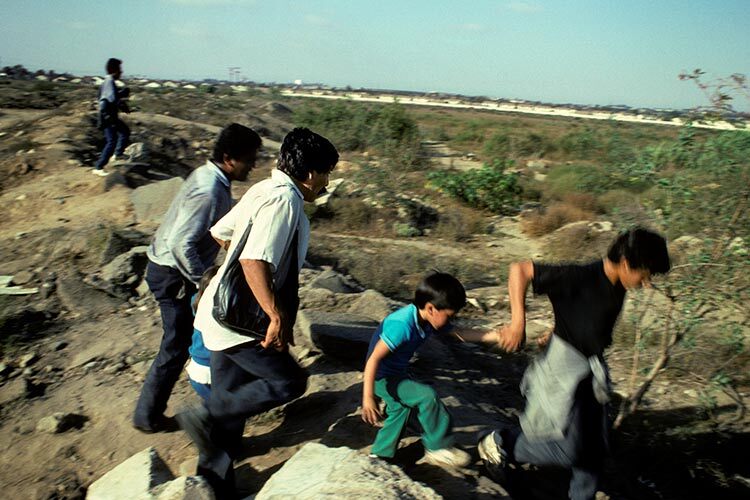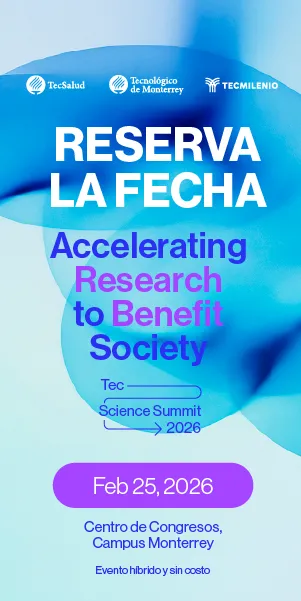What is the first thing that comes to mind when you read the word “migrant”? Would you be willing to donate part of your salary to an organization that guarantees a safer migration for those who do so? Recently, researchers published an article on the role empathy plays in the attitudes of people towards protecting migrants from violence.
Nowadays, migrants from Central and South America who cross Mexico on their way to the north or that remain in the country face increasing violence at the hands of organized crime, such as kidnappings, forced disappearances, sexual violence, extortion and violent robberies while they cross.
“Historically, Mexico was the place they transit through on their way to the United States or Canada, but in recent years we’re seeing a shift in this dynamic because the anti-migration policies of these countries are forcing them to stay here,” says Rebecca Bell-Martin, research professor at the School of Social Sciences and Government (ECSG) of Tec de Monterrey.
Faced with this situation, activist groups have mobilized to find ways to protect migrants from these dangers, although not everyone seems to be in favor of them.
In 2019, 64% of Mexicans that were surveyed by the Washington Post and Reforma said they consider migrants to be a burden on the country, while 32% believed that they commit more crimes than those citizens by birth.
“Around the world we have seen an increase in the number of migrants, but also in social reactions towards the immigration process,” says Bell-Martin.
According to her, this highlights a phenomenon in which some people are more likely to support public policies that protect migrants, while others oppose them.
To find out why this variation occurs and how people can be inspired to support this cause, she and Alejandro Díaz Domínguez, a research professor at the School of Government and Public Transformation, analyzed whether empathy is an important factor.
Two Ways to Generate Empathy Towards Migrants
Throughout her career, Bell-Martin has focused on how to get people more interested in solving social problems and helping those in need.
In her work on community responses to organized crime violence, she has found that “we are more likely to participate in some type of anti-violence community project if we have been exposed to a case that makes us feel empathy towards crime victims” explains the researcher.
Empathy is the human capacity to emotionally understand the experiences of other individuals and connect with them through this understanding.
With this in mind, the experts analyzed whether it can also help Mexicans support movements or public policies that seek to protect migrants from organized crime violence.
To do so, they analyzed data from a survey focused on measuring Mexican experiences and perspectives towards organized crime, conducted by Andreas Schedler of the Center for Economic Research and Teaching (CIDE).
One of the questions included in the survey was whether they would be willing to donate 50 pesos to an organization focused on preventing migrants from falling into the hands of criminals.
In their paper, Bell-Martin and Díaz Domínguez argue that there are two ways this empathy can be generated.
One is criminal victimization, in which a person or their family has been a direct victim of organized crime. The other is empathetic victimization, in which a person imagines that the type of violence experienced by migrants could happen to them or a loved one.
Through a correlation analysis, they found that both channels cause people to empathize and be more willing to protect migrants from organized crime, but those most likely to do so are those who have experienced it firsthand.
We Need More Stories of What Migrants Live In Route
So how do we get more people to empathize with migrants and want to help them?
“A lot of it has to do with being able to identify similarities between you (a migrant) and myself,” says Bell-Martin. “It could mean that we are both mothers or women.”
Therefore, we need the population to hear and read stories about what migrants experience in their journey through Mexico.
Statistics, such as one that says that 29% of migrants are victims of physical, psychological or sexual violence, help us understand that this is not a small problem, but they do not portray the human experience.
It is also important to understand that migrants have particular vulnerabilities to organized crime. Among them is the fact that many are already fleeing violence, so they have nowhere to go to stay safe. Many also migrate irregularly, so they seek to stay under the radar.
“If you are already trying to stay hidden, then who do you alert when you experience a crime? If you go to the state government authorities, are you going to get punished for it?” Bell-Martin asks.
Keeping this in mind can help us understand how deeply difficult it is to be a migrant in these conditions.
To find these stories, there are organizations created by migrants themselves, or by victims of organized crime, as well as non-governmental organizations, media outlets and individuals who seek to tell them.
“What I’m trying to do with my research is show that we can, even in dire circumstances, create good things, but that we also need allies,” says Bell-Martin. “I feel strongly that it is not fair or just to rely on migrants to do all the work of protecting themselves.”
Through empathy and other avenues, these scientists hope that circumstances for migrants will improve soon.
Were you interested in this story? Do you want to publish it? Contact our content editor to learn more marianaleonm@tec.mx
















